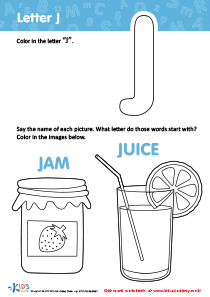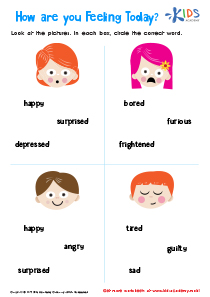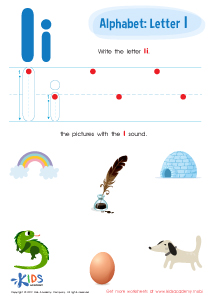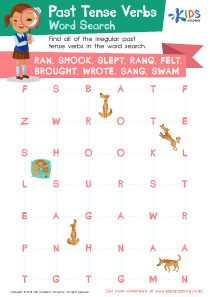Foundational Reading Lessons | Inflectional Endings, Grade 3
0 results
Our Inflectional Endings Lessons are designed to help students in Grade 3 learn how to identify and use inflectional endings correctly. Through a combination of interactive worksheets, engaging educational videos, and assessment quizzes, students will learn about the different types of inflectional endings, including -s, -es, -ed, and -ing. Our lessons are designed to be interactive and fun, so students will enjoy learning about this important aspect of the English language. With our Inflectional Endings Lessons, students will gain the skills and confidence they need to become confident and capable communicators.
Inflectional Endings Lessons are designed for children in Grade 3 to help them understand the different types of endings in words. These lessons consist of interactive worksheets, educational videos, and assessment quizzes that make learning fun and engaging for kids.
Inflectional endings are suffixes that change the meaning of a word to show various grammatical functions such as tense, number, and gender. Learning about inflectional endings is an essential aspect of children’s language development because it helps them to become proficient in reading, writing, and speaking skills. By understanding these endings, kids can easily identify the meaning of the word and how it functions in a sentence, which is critical for them to effectively communicate their thoughts and ideas.
One of the many benefits of Inflectional Endings Lessons is that they provide children with multiple opportunities to practice their language skills. Interactive worksheets, educational videos, and assessment quizzes help students to engage with the material in various ways, ensuring that they stay motivated and interested in their studies. These lessons are also a great way to build a foundation of knowledge that will help children to approach more advanced concepts with confidence.
Inflectional Endings Lessons can teach children about the different types of endings, including verb endings such as -ed, -ing, -s, -es, and -est, and plural endings such as -s and -es. Children will learn how these endings change the meaning of words and how they can be used to express tense, number, and gender in sentences. They will also learn how to correctly spell words that have inflectional endings, improving their writing skills.
In addition to improving language skills, Inflectional Endings Lessons can also have a positive impact on children's overall academic performance. By helping them to develop a stronger understanding of language rules and conventions, these lessons can improve their comprehension of written materials, enhance their ability to communicate effectively in oral presentations, and ultimately increase their performance in all subject areas.
Moreover, Inflectional Endings Lessons offer children valuable opportunities to practice problem-solving and critical-thinking skills. As they learn to apply their knowledge of inflectional endings in various contexts, students are encouraged to think creatively and to innovate solutions to language challenges. These lessons help students to develop lasting skills that will serve them well not only in language arts but in all aspects of their lives.
In conclusion, Inflectional Endings Lessons are a valuable tool for children in Grade 3 to develop their language skills.















